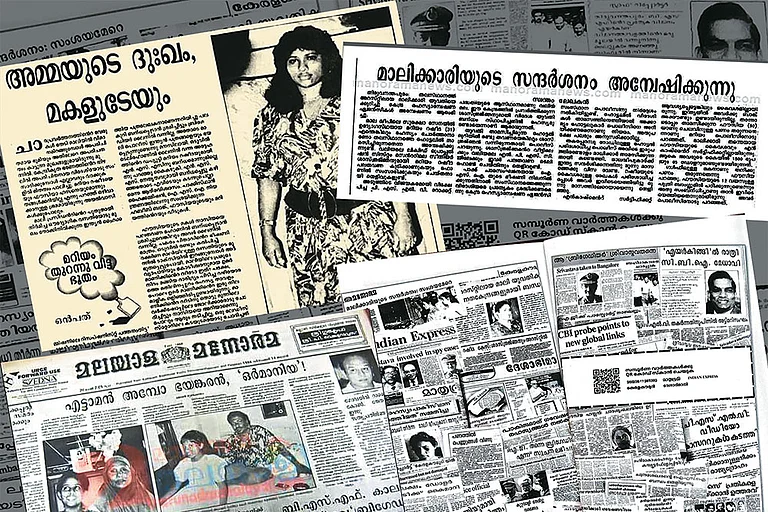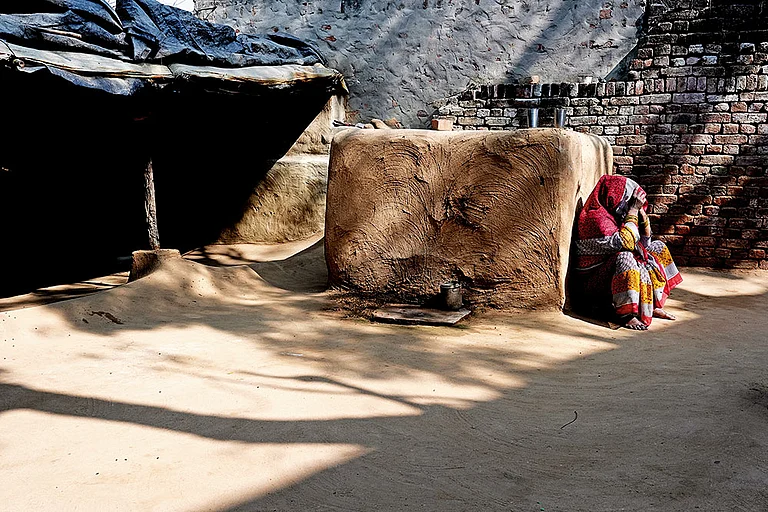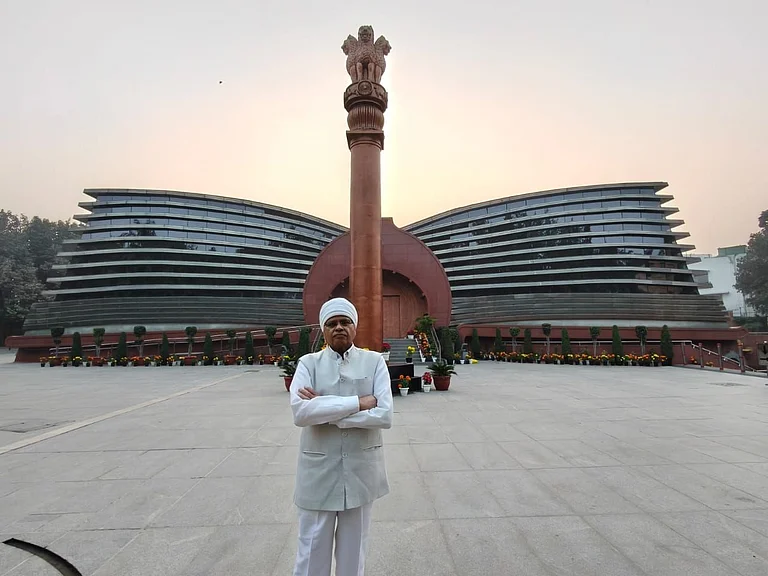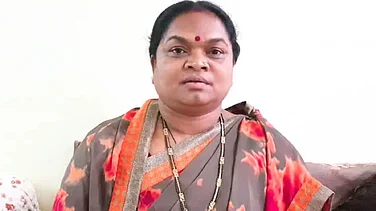
Summary of this article
Once hailed as the “voice of the voiceless”, Vedan now faces rape and assault cases, with multiple women coming out in public and cases getting registered.
Despite police cases, drug arrests, and wildlife violations, his songs still dominate youth spaces—showing how dissenting art and disturbing allegations coexist uneasily.
Targeted by right-wing complaints, shunned by cultural gatekeepers, yet canonised in university syllabuses, Vedan embodies both the possibility and peril of Kerala’s cultural insurgency.
On August 27, 2025, the Kerala High Court granted anticipatory bail to Hirandas Murali—better known by his stage name Vedan—in a case where a young doctor accused him of rape under the pretext of marriage. Outside the courtroom, murmurs spread faster than the order itself. Some spoke of relief, others of betrayal.
Online, his supporters hailed the decision as vindication of a cultural warrior who had been unfairly hounded by the state and his political rivals. His critics, meanwhile, asked the only question that now seemed to matter: Can the voice of resistance still carry meaning when the man behind it stands accused of repeated harm?
This was not an isolated complaint. Hardly a couple of hours before the granting of bail by the court, the Ernakulam Central police had booked Vedan under Section 354 of the IPC for allegedly assaulting another woman in 2020.
Two more women had written to Chief Minister Pinarayi Vijayan with complaints of sexual assault—one a researcher who met him through Dalit music, another who said she came forward during Kerala’s #MeToo wave in 2021.
In April this year, Vedan was arrested for possession of cannabis and booked by the Forest Department for wearing what was suspected to be a leopard-tooth pendant. By July, he had gone underground after police issued a lookout notice to prevent him from leaving the country in connection with the complaint filed by the young doctor.
And yet, in Kochi’s hip-hop circles, in Dalit colonies of Thrissur, and in Kerala’s cultural underground, Vedan’s words still thunder. His recent track, “Theruvinte Mon” (“Son of the Streets”), with its raw visuals and lyrical defiance, is widely shared on Instagram Reels and college WhatsApp groups. At university festivals, students mouth his verses even as headlines scream of sexual assault charges. His appeal, it seems, has survived—even deepened—in controversy.
From Labour Settlements to Literary Syllabus
Born in Thrissur in 1994 to a Dalit father who worked as a daily wage labourer and a Sri Lankan Tamil refugee mother, Vedan grew up in worker settlements without ancestral land or generational privilege. His stage name—literally “hunter” in Malayalam—was a deliberate reclamation of caste identity, an assertion that Dalit life itself could be a weapon and a metaphor.
His breakout came in 2020 with “Voice of the Voiceless,” a grainy YouTube rap video confronting caste humiliation and colourism. Overnight, he became a sensation. His music refused mimicry of Western rap clichés. Instead, it fused Malayalam slang, folk rhythms, and global protest references—from George Floyd to the Gaza Strip. Songs like Bhoomi Njan Vazhunidam and Social Criminal positioned him as the poet of Kerala’s streets.
By 2021, his lyrics were included in Calicut University’s English literature syllabus—a move that sparked a bitter debate. Critics accused the university of lowering its standards. At the same time, supporters hailed Vedan as a Dalit public intellectual who was breaking into elite spaces. In truth, his inclusion only reflected what was already happening on the ground: young Malayalis, disenchanted with both Left and Right, had found in Vedan a defiant anthem.
Hero and Predator?
The present crisis forces an uneasy reckoning. Vedan is not the first artist accused of sexual misconduct. Pablo Neruda wrote openly of rape in his memoir, yet he remains a global literary icon. Michael Jackson’s music still fills stadiums despite decades of child abuse allegations. In Kerala itself, actors with sexual harassment cases continue to enjoy fan bases and political office.
But Vedan’s case is different. Unlike Neruda or Jackson, his social location makes him vulnerable to quicker abandonment. A Dalit rapper without institutional backing, his legitimacy has always been fragile; his art has been dismissed by critics as “street noise.”
When allegations emerged against him, they struck not at a towering institution but at a precarious cultural insurgent. The impatience to “cancel” him reveals an uncomfortable truth: society often separates art from the artist more generously when the artist comes from a privileged background.
This double standard is not lost on his followers. To them, Vedan’s troubles are proof of systemic bias. “They want to silence him because he speaks of caste, oppression, and hypocrisy,” says an engineering student in Kozhikode who runs a fan page for him. “Savarna actors with worse allegations are celebrated. Why only Vedan?”
But for survivors and women’s rights activists, this defence is dangerous. Activists say they cannot reduce women’s trauma to a caste war, and a man can be both oppressed and oppressive. They say his politics do not erase the violence alleged against him.”
Politics of Persecution
Vedan’s adversarial relationship with power predates these cases. In 2022, a BJP councillor petitioned the NIA against his songs, claiming they defamed Prime Minister Modi and promoted caste division. His ganja arrest earlier this year was widely seen by his supporters as state harassment. When the Forest Department booked him for a leopard-tooth pendant, cultural icons like singer Shahabaz Aman called it “an attempt to criminalise a Dalit youth’s ornaments.”
Each controversy has only amplified his appeal as a cultural dissenter. Like Tupac before him, Vedan’s myth is inextricably linked to his police records. The establishment’s pursuit of him, real or perceived, feeds into the very persona he cultivates: outlaw, rebel, voice of the dispossessed.
The Split Screen
Today, Kerala finds itself watching Vedan on a split screen. On one side: a defiant Dalit rapper who dragged the state’s progressive self-image into uncomfortable light, reminding Malayalis that caste did not vanish with literacy. On the other hand, a man accused by multiple women of manipulation, coercion, and sexual assault.
The dilemma is not whether we can “cancel” Vedan or continue to play his music. It is whether we can sit in discomfort long enough to acknowledge both truths: that his art matters, and that his alleged actions cause harm. To dismiss one in favour of the other is to betray the complexity of the moment.
For Kerala’s cultural imagination, Vedan is both a symptom and a symbol: of protest music’s power to unsettle, of caste’s unresolved fault lines, and of the limits of idol-making in an age when survivors are speaking up with increasing clarity.
Historian and writer Dr. Malavika Binny points out, “On most occasions, Dalit rights assertions are being interpreted as rights of Dalit men, and the resistance by Dalit women against injustice remains unnoticed or side-stepped. In the case of Vedan, he is undoubtedly a major Dalit voice. Still, those who are levelling allegations against him include Dalit women. As an artist who stood for transformation, he should have been more mature and responsible, because leaders and artists from marginalised communities carry the additional burden of paving the way for others like them. They need to be more vigilant and informed about crimes against women and other marginalised communities.”
In Theruvinte Mon, Vedan raps: “I am the street’s son, born of scars, raised in smoke.” Today, the scars are no longer just lyrical; they are also a testament to the past. They are political, legal, and deeply personal—etched on the women who have spoken out, and on a society unsure whether to hum his tunes or hold him accountable.

























